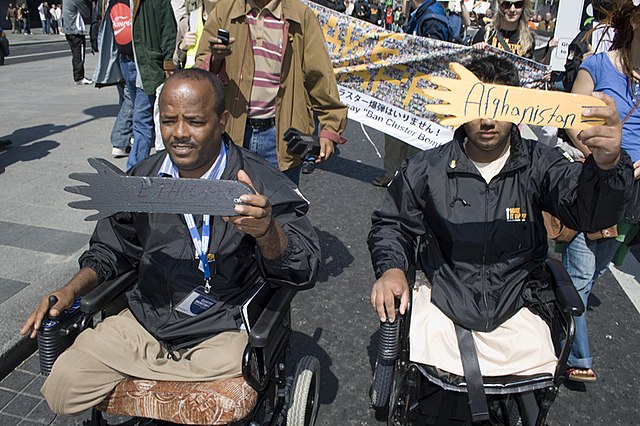In international humanitarian law and international criminal law, an indiscriminate attack is a military attack that fails to distinguish between legitimate military targets and protected persons. Indiscriminate attacks strike both legitimate military and protected objects alike, thus violating the principle of distinction between combatants and protected civilians. They differ from direct attacks against protected civilians and encompass cases in which the perpetrators are indifferent as to the nature of the target, cases in which the perpetrators use tactics or weapons that are inherently indiscriminate, and cases in which the attack is disproportionate, because it is likely to cause excessive protected civilian casualties and damages to protected objects.
The Bombing of Dresden (13–15 February 1945) killed an estimated 25,000 people and is often regarded as a case of indiscriminate air attack.
Demonstrators at the May 2008 Dublin Diplomatic Conference on Cluster Munitions that produced the Convention on Cluster Munitions.
Big Bertha. Shells for the 42 cm guns were generally 1.5 m long and weighed between 400 and 1,160 kg.
The photo Bloody Saturday shows a burned and terrified baby following an aerial attack during the Battle of Shanghai.
International criminal law
International criminal law (ICL) is a body of public international law designed to prohibit certain categories of conduct commonly viewed as serious atrocities and to make perpetrators of such conduct criminally accountable for their perpetration. The core crimes under international law are genocide, war crimes, crimes against humanity, and the crime of aggression.
The International Military Tribunal in Nuremberg was the first court to apply international criminal law.
The Lebanon Tribunal in Leidschendam, Netherlands
The International Criminal Court in The Hague







